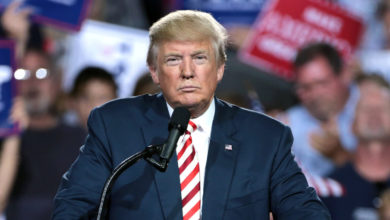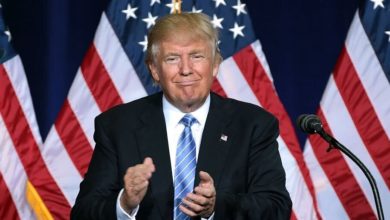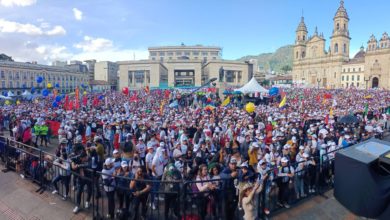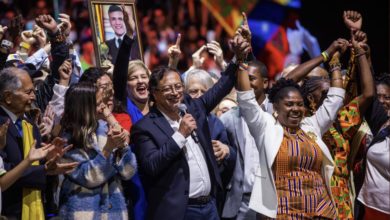On June 17, leftist candidate Gustavo Petro will square off against far-right candidate Ivan Duque in a runoff election in Colombia. At stake in the elections is the survival of the peace process and the question of social and economic reform.
In the May 27 presidential elections, the first since the 2016 accords ending the civil war, Petro won 25 percent of the vote and Duque finished first with 39 percent. Because the winning candidate needs a majority to secure victory, run-off elections are now scheduled to take place.
One of the most surprising developments in regards to the election was the percentage of the electorate who voted — 54 percent. For perspective, the estimated voter turnout for the U.S. 2016 election was 55 percent. In Colombia, the 2014 election saw a 40 percent turnout for the first round. The turnout percentage has not risen above 50 percent since 1998, making this the largest voter turnout in two decades.
The two candidates in the run-off, one of whom will take office on August 7, offer very different visions for Colombia’s future.
Duque is an establishment, pro-corporate politician who was born into a wealthy family and has served a number of Colombian presidents. He was anointed by former president Alvaro Uribe, a current senator. Uribe is an infamous right-wing politician with connections to drug trafficking and paramilitary organizations. He is an enemy of the Colombian people’s desires for peace and social justice. Uribe and his protege Duque are loyal servants of U.S. imperialism, which has for decades fueled the country’s war and facilitated right-wing paramilitary terror.
Duque wants to expand corporate privileges in Colombia and “amend” crucial parts of the peace agreement with the Revolutionary Armed Forces of Colombia to gut the deal and push the country back to war. Specifically, he wants former FARC guerrillas banned from political participation and to be able to incarcerate them. He wants to open Colombia to fracking.
A progressive alternative
Petro is a long-time leftist politician with an entirely different agenda that includes agrarian reform, bolstering social welfare programs, tackling inequality and maintaining the peace accords. Many decades ago he was a leader in the M-19 guerrilla movement. The movement made a series of poor strategic choices — the worst of which occured while Petro was in prison — and relinquished arms to become a political party in the early 1990s. Since 1991, Petro has held a number of political positions, from Congress to diplomatic attache to mayor of Bogota. He has a reputation for being anti-corruption and progressive, although it should also be noted that he has also consistently denounced the revolutionary guerrilla movement.
Combined, the pro-peace forces narrowly carried the election with Petro winning 25.1 percent and a quite popular left moderate candidate Sergio Farjado winning 23.7 percent, joined by the 2.1 percent of the electorate who voted for former president Humberto De la Calle.
The fact that Sergio Fajardo received such a high vote percentage has played out as a battle now for his support and that of the movement he represents, Compromiso Cuidadano or Citizens Compromise. The movement has refused to support either candidate, despite profound pressure to do so. They are trying to navigate a third road — insisting that they are not pro-Uribe, or pro-right wing while not coming out in support for Petro as well.
Opinion polls have shown that Duque is ahead, but Petro is closing the gap. The outcome will have a profound impact on the future of the country. Will the extreme right-wing be able to press their deadly offensive against social movement and progressive leaders, or will the peace process survive and new avenues for struggle and progress open?






